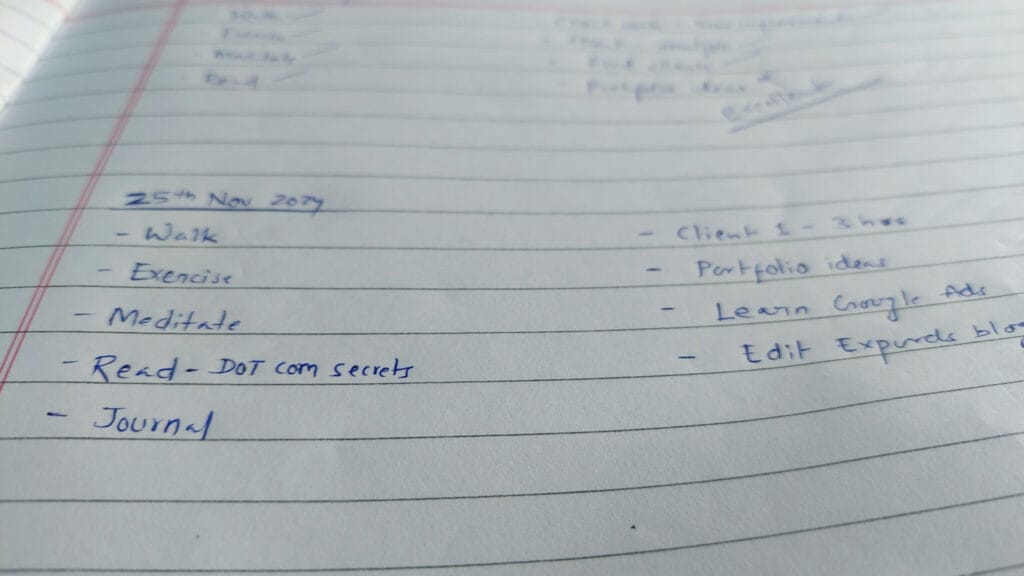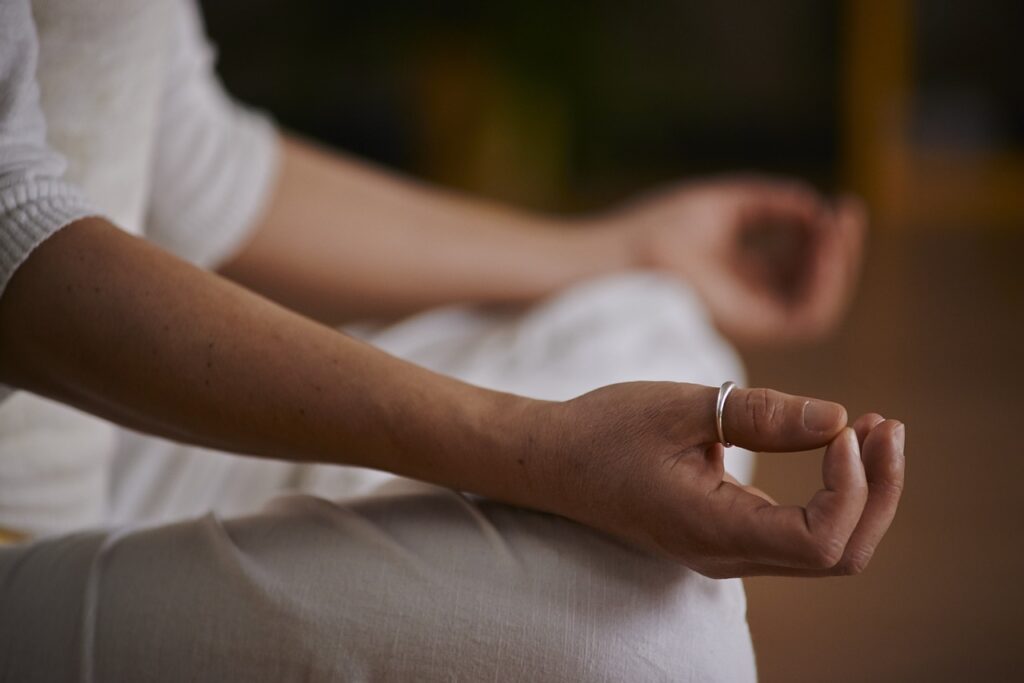It’s 4:31 am right now. I just woke up like I usually do. It’s dark outside, and everyone else is still asleep. But here I am, starting my day.
Waking up early has this magic. You feel energized, productive, and ready to take on the day.
But I admit, it’s not always easy. There are plenty of mornings where I find it tempting to stay in bed. It’s just that I have some really simple but smart habits that make it almost impossible to remain asleep.
A lot of people think waking up early is just about opening your eyes and getting out of bed. But that’s not how it works. The truth is how early you wake up mostly depends on what you did the day before.
In this post, I’m going to share those simple but smart habits that help me wake up early (3:58 am) every day. I’ve been doing them for years, and they work. So, try them out and see how they can help you.
How to Wake Up Early: Just Build these 8 Smart Habits
1. Get Physically Tired
Studies show that exercising helps most people sleep better. There is also evidence that exercise reduces sleep onset (the time to fall asleep), so you don’t spend hours lying awake in bed.
I’ve experienced the same. On the days I exercise and get physically tired, I sleep much better. But on the days I don’t, I feel restless and lazy.
That’s why I make sure to stay active during the day. I run or walk in the morning, do yoga, and work out in the evening. All of this helps me pass out early, enjoy deeper sleep, and wake up early the next day.
When you’re physically exhausted, it’s hard not to sleep. So, try doing some form of exercise — whether it’s endurance, strength, balance, flexibility, or a mix of everything.
Test out different times and intensities of exercise, and see what works best for you.
“Each night, when I go to sleep, I die. And the next morning, when I wake up, I am reborn.”
― Mahatma Gandhi, Indian freedom fighter
2. Fix Your Why
Here’s the thing: you won’t wake up early if you don’t have a solid reason.
Why would you get out of bed? What will you do once you’re awake? Most people don’t have a clear answer to that, and that’s why they hit snooze.
When the alarm goes off, and you start thinking, “Should I wake up or sleep more?” your mind will always give you reasons to stay in bed. Our brain likes comfort. It avoids anything difficult, and waking up early is difficult.
So, what’s your reason for getting up early? What will you do? Why does it matter? And what will you miss out on if you don’t? You need convincing answers to these questions. They will help you get up even when you don’t feel like it.
“If your why is strong enough you will figure out how.”
— Bill Walsh, American football coach
So, make sure your reason is clear and powerful. And to get that clarity, you’ll need this next habit…
3. Plan Your Day
You need to plan your day before you go to bed. This way, you’ll know exactly what needs to be done and how much time it will take. And so, it’ll give you a strong reason to wake up.
How to do it? You can simply write a to-do list of the important tasks. Because writing down your goals is a powerful habit. A study by Gail Matthews, a psychology professor, found that people who wrote down their goals were 33% more successful in reaching them.
That’s why I always make a to-do list in a notebook and pick one task I’ll do right after waking up at 4 am. It’s usually the hardest task of the day, something that needs focus and creativity.


For example, I usually write for one hour, from 4:15 am to 5:15 am. I decide what topic I’ll work on, and I’m clear about how long I’ll write.
A to-do list creates urgency. It tells your mind that these tasks are important and must be done. So, it’s a solid motivation to wake up.
Lose an hour in the morning, and you will be all day hunting for it.
― Richard Whately, English philosopher
4. Sleep Early
This is the most important habit. I’ve seen so many people try to wake up at 5 am or 6 am after going to bed at 2 am, and then they complain that they aren’t morning people.
Of course, they’re tired! You can’t expect to wake up early without enough sleep. You have to sleep early to wake up early. It’s that simple.
Your body needs rest, and if you don’t get enough, you’ll feel groggy and cranky the whole day. You don’t want that. The goal of waking up early is to be more productive, not to drag through the day.
That’s why I go to bed by 9 pm to wake up at 4 am. I need at least 7 hours of sleep to function properly. So, when I wake up, I feel refreshed, and my body isn’t begging for more sleep.
Figure out how many hours of sleep you need to feel fresh and adjust your bedtime accordingly. If you need 7 hours and want to wake up at 5 am, set a reminder at 9:45 pm and aim to be in bed by 9:55 pm.


5. Avoid Your Phone
Going to bed should be calm and peaceful. But if you are using a phone, you might see something that makes you anxious, angry, guilty, or upset. And those emotions make it harder to fall asleep.
Phones are sleep killers. They emit this blue light, and research shows that blue light lowers melatonin levels. Melatonin is the hormone that controls your sleep-wake cycle. When your body doesn’t have enough of it, you might have trouble sleeping.
But a lot of people check social media before bed. In one study, about 70% of people used social media while in bed, and the more they used it, the more they struggled with insomnia, anxiety, and shorter sleep.
Scrolling through your phone or watching TV keeps your mind engaged and stimulated, so you stay awake. That’s why I try not to use my phone after 7 pm. The goal is to get bored enough that I fall asleep.
And anyway, the entertainment industry is spending hundreds of billions of dollars to buy your attention. It’s not a fair fight. You can’t let them win.
“Never waste any time you can spend sleeping.”
— Frank H. Knight, American economist
6. Calm Your Mind
If your mind is racing with thousands of thoughts when you’re lying in bed and watching the ceiling, you probably won’t feel like sleeping. You need to switch them off.
That’s why it’s important to calm your mind before going to sleep. And you know how to do this.
In 2014, a study on mindfulness meditation with 54 adults suffering from chronic insomnia found that meditation helped them sleep better. It’s a simple but powerful tool.
I meditate for just 10–15 minutes before bed, and it brings me peace. My stressful and negative thoughts fade away. There are no worries. I forget everything and feel calm and happy.
When your mind is calm, you sleep faster and better. And you also wake up with a calm mind, which makes your next day productive. Just 10 minutes of meditation can make a huge difference.


7. Place the Alarm Clock Away
Just a few years ago, I struggled to wake up early. The problem was I used to turn off the alarm without even realizing it and then go back to sleep. And I’d end up waking much later. But then I found this clever trick.
A friend of mine, who wakes up early every day, gave me this advice:
“Place your alarm clock far from your bed. This way, you can’t just reach over and hit snooze in seconds. You’ll have to actually get out of bed, stand up, and walk over to turn off that annoying sound. And by the time you get to your alarm, you’re already out of bed and fully awake.”
I was like, “No, this isn’t going to work.” At that time, I was convinced I was not a morning person.
But to my surprise, it worked. And now I wake up at 4 am mostly because of this habit.
All this time, we were talking about what to do before going to bed. Now, you’re ready to go to bed. So, take 6–8 hours of deep sleep. After that, you get up the next morning to turn off the alarm, and here’s what you do:
8. Get into the Morning Routine
Your mind will try to convince you to go back to sleep. Don’t listen to it. And definitely don’t grab your phone. Instead, get into a routine that would help you remain awake.
For example, just after I get up from bed, I turn off the alarm, make my bed, and head to the washroom. I attend to nature’s call, gently wipe my eyes with a clean, damp cloth, drink 1–2 glasses of water, and then turn on the lights.
So, find the routine that works for you. And do this every day after you wake up. Make it a habit.
Over time, it’ll become automatic, and your mind won’t fight you. The moment you turn off that alarm, you’ll feel the urge to freshen up and drink water. This way, it’ll be really difficult not to wake up early.
“The breeze at dawn has secrets to tell you. Don’t go back to sleep.”
— Rumi, Sufi mystic and poet
If you’re a one-person business owner, you should join my newsletter for more such stuff. I share my crazy experiences and lessons on writing, marketing, and personal growth. It would be fun!
About the Author
Saurav Mandal
I’m a content marketer and copywriter who helps small businesses grow online. I like learning new things, gaining new experiences, and achieving new heights. This website is where I share everything I’ve learned about marketing and life. My hobbies include reading, traveling, and watching movies.



